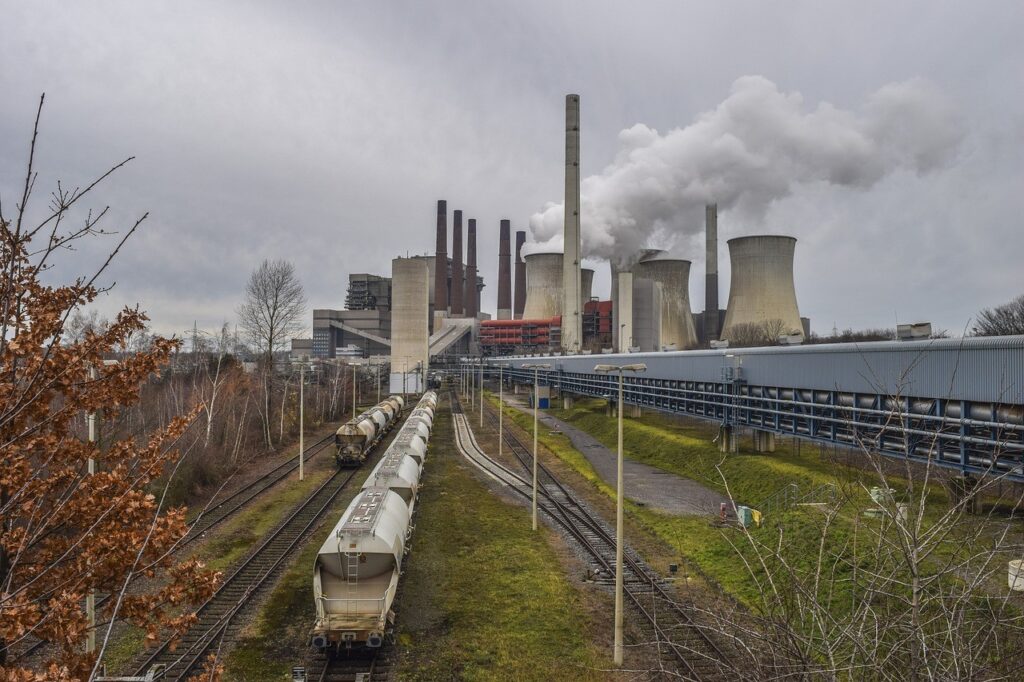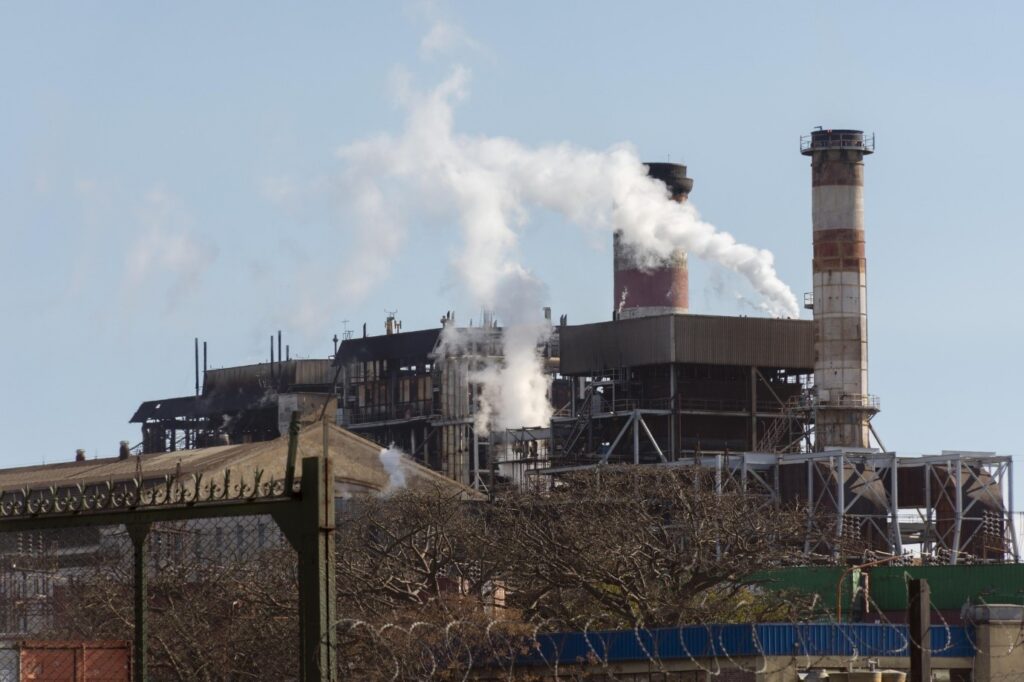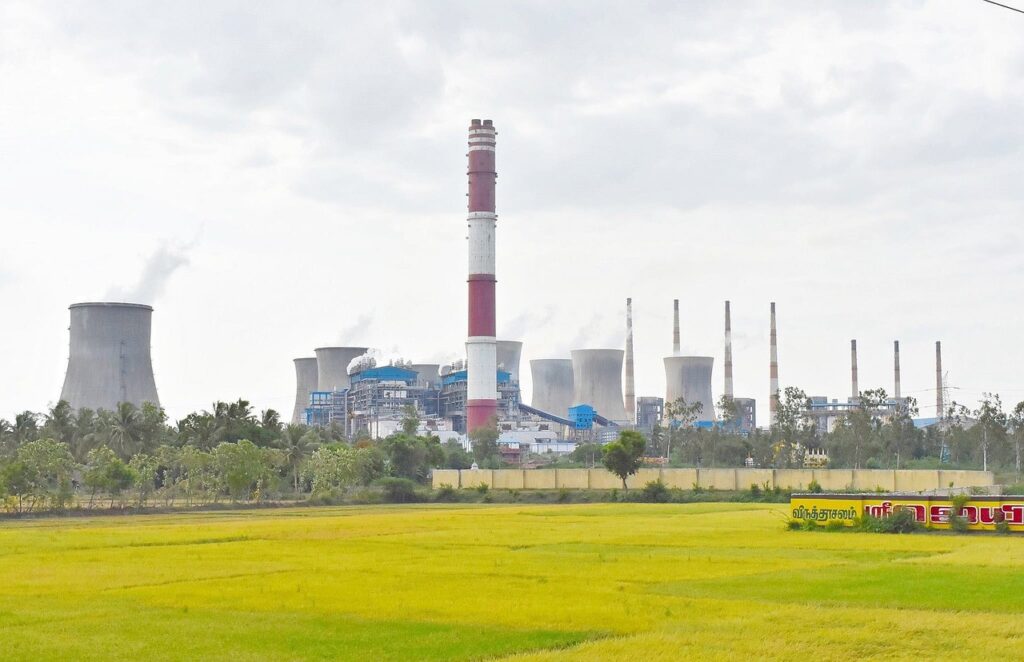Explore Power Plant Job Opportunities: From Biomass to Hydro & Beyond in the USA
The energy sector is undergoing a significant transformation, with technological advancements, regulatory changes, and a growing focus on sustainability. This has led to an increasing number of job opportunities across various types of power plants. In the USA, the shift toward renewable energy, as well as the continued reliance on traditional sources like coal and natural gas, has created a dynamic and diverse job market for power plant professionals. Whether you’re interested in working in biomass, coal-fired, hydroelectric, or Gas Turbine Controls Jobs in USA, there are a wealth of opportunities for those with the right skills and qualifications.
This comprehensive guide will explore the job opportunities available in the power generation sector, with a focus on Biomass Power Plant Manager Jobs, Coal-Fired Power Plant Jobs, Hydroelectric Power Plant Jobs, and emerging roles in Battery Storage and Gas Turbine Technologies. We will dive into the responsibilities, qualifications, skills required, and how you can find job openings in these fields.

Biomass and Coal-Fired Power Plant Jobs in the USA
Overview of Biomass and Coal-Fired Power Plants
Biomass and coal-fired power plants are two types of power generation systems that continue to be essential in the U.S. energy mix. Biomass power plants generate electricity by converting organic materials—such as agricultural waste, wood chips, and municipal solid waste—into energy. The conversion process typically involves combustion, gasification, or fermentation. As a renewable energy source, biomass is part of the country’s strategy to reduce carbon emissions and rely less on fossil fuels.
Coal-fired power plants Jobs in USA, while still prominent, are increasingly being phased out due to environmental concerns and the rise of cheaper and cleaner alternatives. However, coal remains a significant energy source in many parts of the country, particularly in older infrastructure. These plants burn coal to produce steam that drives turbines to generate electricity. Despite growing efforts to decarbonize the energy grid, coal-fired plants still provide substantial portions of the nation’s electricity.
Both biomass and coal-fired plants require skilled professionals to ensure smooth operations and adherence to safety and environmental standards.
Common Job Roles in Biomass and Coal-Fired Power Plants
Both biomass and coal-fired plants offer a variety of roles that cater to individuals with different levels of expertise. Common job roles include:
- Power Plant Operator: Power plant operators monitor and control the equipment that generates electricity. They ensure that the power plant is operating efficiently and safely by overseeing turbines, generators, and other essential systems.
- Maintenance Technician: Technicians are essential for maintaining and repairing machinery and equipment within power plants. They are responsible for inspecting, diagnosing, and fixing equipment such as boilers, turbines, and electrical systems to avoid downtime.
- Environmental Compliance Specialist: Given the strict environmental regulations surrounding power generation, environmental compliance specialists ensure that plants adhere to local, state, and federal environmental laws. This includes monitoring emissions, waste management, and ensuring the proper disposal of byproducts.
- Engineer: Engineers in biomass and coal-fired plants focus on optimizing processes and improving efficiency. They might be involved in system design, upgrades, performance analysis, and troubleshooting complex technical issues related to plant operations.

Key Responsibilities in Biomass and Coal-Fired Power Plants
In these plants, professionals have several critical responsibilities:
Monitoring and Operating Systems: Operators must continuously monitor systems to ensure the power plant is functioning properly. This includes keeping an eye on temperature, pressure, and other vital parameters that affect plant efficiency.
Troubleshooting and Maintenance: Quick diagnosis and repair of any mechanical or electrical issues are crucial. Maintenance technicians and operators work closely together to keep the plant in peak condition and reduce unscheduled downtimes.
Safety and Regulatory Compliance: Workers must ensure that all operations meet safety standards and adhere to regulatory requirements. This involves regular safety inspections, audits, and preventive maintenance.
Documentation: Accurate record-keeping is vital for operational success and regulatory compliance. Documentation might include maintenance logs, compliance reports, and performance metrics.
Educational Requirements for Biomass and Coal-Fired Power Plant Jobs
The educational requirements for roles in biomass and coal-fired plants depend on the specific job function. However, there are common educational pathways for most of these positions:
- Entry-Level Roles: For entry-level positions such as power plant operators or maintenance technicians, a high school diploma is typically required. It is advantageous for candidates to have coursework or certifications in mathematics, science, or technology-related fields.
- Technical Training: Many positions in biomass and coal-fired plants require specific technical training or certification in power generation, electrical systems, or mechanical engineering. Programs such as Certified Plant Maintenance Manager (CPMM) or Certified Energy Manager (CEM) can be useful.
- Advanced Roles: For engineering roles or high-level positions, a bachelor’s degree in electrical engineering, mechanical engineering, environmental science, or a related field is often required.

Where to Find Biomass and Coal-Fired Power Plant Job Openings
Job seekers can explore a range of job boards and platforms to find openings in biomass and coal-fired plants. Some of the best sources for power plant job listings include:
General Job Boards: Websites like Indeed, Glassdoor, and LinkedIn often have comprehensive listings of power plant jobs, including those in biomass and coal-fired facilities.
Specialized Energy Job Sites: There are several job boards specifically dedicated to energy sector roles, such as Energy Jobline and Power Industry Support. These platforms are excellent for finding positions related to biomass and coal-fired power generation.
Company Websites: Major energy companies often list job openings directly on their websites. Leading power producers like NextEra Energy, Duke Energy, and Southern Company frequently post job openings across their various plants.
Careers in Gas Turbine Controls and IC&E Technician Roles
Understanding Gas Turbine Technology
Gas turbines are central to modern power generation. They are primarily used in natural gas plants and provide a more environmentally friendly alternative to coal. Gas turbines are capable of high efficiency and low emissions, which is why they are a core technology in the energy transition.
Key Job Roles in Gas Turbine Technology
As gas turbines are essential components of many power plants, they require professionals who specialize in their operation and maintenance. Key roles include:
Gas Turbine Technician: This position involves overseeing the maintenance and operation of gas turbines. Technicians must ensure that the turbines operate efficiently, safely, and within regulatory standards.
Control Systems Engineer: Engineers in this role focus on developing, testing, and maintaining the control systems that regulate gas turbine operations. These engineers work on both hardware and software solutions that manage turbine functions.

Skills Required for Gas Turbine Jobs
To excel in gas turbine roles, candidates should have the following skills:
Mechanical and Electrical Knowledge: A solid understanding of mechanical systems (such as turbines and compressors) and electrical systems is essential. Technicians must be able to troubleshoot mechanical and electrical problems quickly.
Analytical Thinking: Gas turbine operations can be complex, requiring professionals to analyze data and make adjustments based on performance metrics.
Problem-Solving Skills: Gas turbine technicians need to quickly diagnose and fix issues to prevent costly downtime and maintain efficiency.
Job Market Insights for Gas Turbine Careers
The demand for gas turbine technicians is expected to continue to rise due to the growing use of natural gas in power generation. The U.S. energy landscape is shifting, with an increasing reliance on natural gas, making this a strong field for job seekers. Those interested in this career path can enhance their employability by obtaining certifications such as those offered by the National Institute for Certification in Engineering Technologies (NICET).
Opportunities in Hydro and Battery Storage Power Plants
The Role of Hydroelectric Power Plants
Hydroelectric power plants generate electricity by harnessing the power of flowing water, making them one of the oldest and most reliable sources of renewable energy. These plants use turbines that are driven by the flow of water from rivers, dams, or other natural water sources.
Key Positions Available in Hydroelectric Power Plants
Hydroelectric power plants offer a variety of roles, including:
- Hydroelectric Plant Operator: Operators are responsible for ensuring that hydroelectric facilities run smoothly. They oversee water flow, turbine operations, and overall plant efficiency.
- Battery Storage Technician: As part of the growing renewable energy sector, battery storage systems are used to store excess energy generated by renewable sources like wind and solar. Technicians maintain and troubleshoot these systems to ensure reliability.
Essential Skills for Hydro and Battery Storage Roles
To succeed in hydroelectric and battery storage roles, candidates should possess the following skills:
- Knowledge of Hydraulic and Mechanical Systems: Understanding water flow, turbine mechanics, and hydraulic systems is crucial for hydroelectric plant operators.
- Electrical Engineering Expertise: As renewable energy sources become more integrated with battery storage systems, knowledge of electrical systems is critical for ensuring optimal energy storage and distribution.
- Analytical Skills: Battery storage technicians must analyze data to optimize the performance of storage systems and ensure efficient energy use.
Finding Job Opportunities in Hydroelectric Power Plants
Hydroelectric power plant roles can be found through renewable energy job boards like Renewable Energy Jobs and Energy Jobline, which specialize in listing opportunities across the renewable energy sector. These platforms often feature a wide range of job postings, from entry-level positions to specialized roles, making it easier for job seekers to find opportunities suited to their skill level and experience. Additionally, many of these sites allow candidates to set up job alerts, ensuring that they are notified as soon as new roles are posted.
Attending industry-specific networking events, such as renewable energy conferences, seminars, and job fairs, is also a great way to connect with professionals in the hydroelectric field. These events provide valuable opportunities to meet industry experts, learn about upcoming projects, and discover unadvertised job openings that may not be listed online. Networking in person or virtually can help you build relationships with key players in the industry, making it easier to secure interviews or gain referrals for positions. Many employers also use these events to scout talent, so making a strong impression could lead to career-advancing opportunities.
Control Room Operator and Boiler Operator Jobs Explained
Importance of Control Room Operators
Control room operators are responsible for overseeing the plant’s entire operation from a centralized location. They monitor the plant’s systems in real time, ensuring that everything runs smoothly and safely. In emergencies, they must act quickly to shut down or adjust systems as needed.
Boiler Operator Roles
Boiler operators manage the boilers that produce steam for generating electricity. Their tasks include maintaining the boiler’s pressure and temperature, inspecting systems for potential hazards, and ensuring that the equipment functions according to established safety protocols.

Key Skills and Qualifications for Power Plant Professionals
Professionals in the power plant industry should have a combination of technical expertise and personal attributes. Some essential skills include:
- Technical Expertise: A deep understanding of mechanical systems, electrical systems, and safety protocols is crucial for all roles in power plants.
- Problem-Solving: The ability to troubleshoot problems quickly can minimize downtime and improve productivity.
- Communication Skills: Effective communication is vital for coordinating with team members and ensuring smooth operations.
Where to Find the Best Power Plant Job Openings in the USA
Finding the right job in the power plant sector requires a strategic approach. Here are some tips for uncovering the best opportunities:
- Online Job Boards: Websites like LinkedIn, Indeed, and Glassdoor are great resources for job listings. Also, energy-specific platforms like Power Industry Support specialize in power plant roles.
- Company Websites: Major energy companies like Exelon, Duke Energy, and Xcel Energy often list job openings on their websites. Regularly checking their career pages can help you stay updated on new positions.
- Networking: Engaging with professionals in the energy sector through conferences, workshops, and industry meetups can provide valuable job leads that aren’t publicly advertised.
Tips for Applying to Power Plant Jobs
When applying for roles in power generation, it’s important to stand out from the competition. Here are some tips:
Tailor Your Resume
When applying for power plant jobs, it’s essential to customize your resume to highlight relevant skills, experiences, and certifications that align with the specific role. For example, if you’re applying for a position at a biomass power plant, emphasize your knowledge of renewable energy technologies, experience with biomass fuel handling, or familiarity with combustion and gasification processes. For roles focused on gas turbines, highlight any experience with turbine operations, control systems, or troubleshooting techniques. Include specific certifications, such as Certified Power Plant Technician (CPPT) or Gas Turbine Maintenance Certifications, to make your resume stand out. Tailoring your resume in this way not only showcases your qualifications but also demonstrates your commitment to the industry.
Craft a Strong Cover Letter
A cover letter is your opportunity to provide a personal touch and demonstrate your enthusiasm for the role and the energy sector as a whole. Beyond summarizing your resume, your cover letter should explain why you’re passionate about the energy industry and how your experience and skills make you the ideal candidate for the job. If you’re applying for a biomass plant position, you might discuss your dedication to renewable energy and sustainability. For a role in a gas turbine or hydroelectric facility, highlight your technical skills and problem-solving abilities in complex systems. Tailor your cover letter to reflect your understanding of the company’s values and goals, and show that you’re eager to contribute to their mission.
Prepare for Interviews
Interview preparation is key to showcasing your technical expertise and problem-solving skills. Be ready to discuss specific systems you’ve worked with, such as gas turbines, boilers, or electrical distribution systems. Prepare to explain how you’ve handled maintenance or troubleshooting in previous roles, particularly in high-pressure situations. Employers may also ask about your knowledge of industry safety standards and regulatory compliance, so review relevant safety protocols and environmental regulations before the interview. Additionally, have examples ready of times you’ve worked as part of a team to improve operational efficiency or resolve technical issues. By being well-prepared, you’ll be able to confidently demonstrate your qualifications and passion for the role.
Benefits of Working in Power Plants
Working in the power generation industry offers a wide range of benefits:
- Job Stability: The energy sector is crucial to modern life, ensuring long-term employment opportunities even during economic downturns.
- Competitive Salaries: Many power plant jobs offer competitive salaries and attractive benefits packages, including health insurance and retirement plans.
- Career Growth Opportunities: Power plants offer many pathways for career advancement, from management roles to technical specialization.
- Impactful Work: Working in power generation means you’re helping to supply energy to homes and businesses, making a tangible impact on society.
Conclusion
The landscape of Power Plants Jobs is diverse and constantly evolving. From traditional coal-fired plants to cutting-edge renewable energy technologies like biomass, hydroelectric, and battery storage, the opportunities are vast. By understanding the roles available, gaining the necessary qualifications, and applying strategic job search techniques, professionals can successfully navigate this dynamic industry.
Whether you’re interested in working as a biomass power plant manager, a coal-fired boiler operator, or a hydroelectric plant operator, there are plenty of exciting opportunities waiting for you. Start your journey today toward a rewarding career in the world of energy generation!
